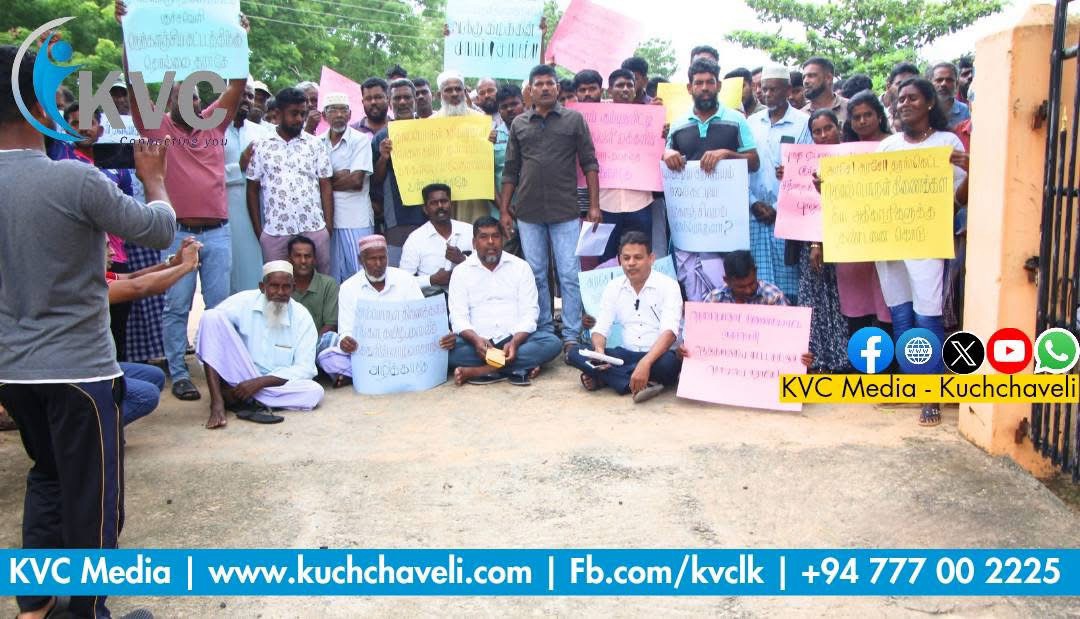Kuchchaveli, Trincomalee, Sri Lanka – Land disputes in the Kuchchaveli region have escalated, with the Archaeology Department acquiring significant tracts of land, This move has sparked widespread protests and renewed concerns about the government’s approach to development and the rights of minority communities.
The Archaeology Department has cited the need to protect and preserve ancient archaeological sites as justification for these land acquisitions. However, local residents claim that many of the acquired lands are fertile farmlands and ancestral properties, with little or no evidence of significant archaeological value.
The Archaeology Department recently installed a new name board on land that has served as a central market and paddy storage yard for decades. Despite these historical uses, the Kuchchaveli Divisional Secretary has shown a long-standing lack of interest in addressing the challenges associated with this site.

The Kuchchaveli Divisional Secretariat Division in Trincomalee, a crucial link between the Northern and Eastern Provinces of Sri Lanka, has experienced severe land dispossession over the past decade. Over half of the region’s land has been seized for various “development” projects and the expansion of Buddhist temples. At least 26 temples have been built on 3,887 acres of expropriated land.
This extensive land acquisition has disrupted the traditional livelihoods of the region’s Tamil and Muslim populations, particularly impacting fertile agricultural and coastal areas.
Community Response :
Local communities have staged protests and filed legal challenges against the land acquisitions. Civil society organizations and human rights groups have also expressed concerns, calling for a halt to the land grabs and a more equitable and inclusive approach to development.
Government Response:
The government has defended the land acquisitions, stating that they are necessary for the preservation of Sri Lanka’s cultural heritage. However, they have also acknowledged the need to address the concerns of affected communities and have promised to review the process and explore alternative solutions.
International Attention:
The land issue in Kuchchaveli has also attracted international attention, with human rights organizations urging the Sri Lankan government to respect the rights of its citizens and ensure that development projects do not disproportionately impact marginalized communities.
Conclusion:
The ongoing land dispute in Kuchchaveli highlights the complex challenges faced by Sri Lanka in balancing development with the rights and needs of its diverse population. Finding a resolution that addresses the concerns of all stakeholders will be crucial for achieving lasting peace and reconciliation in the region.


